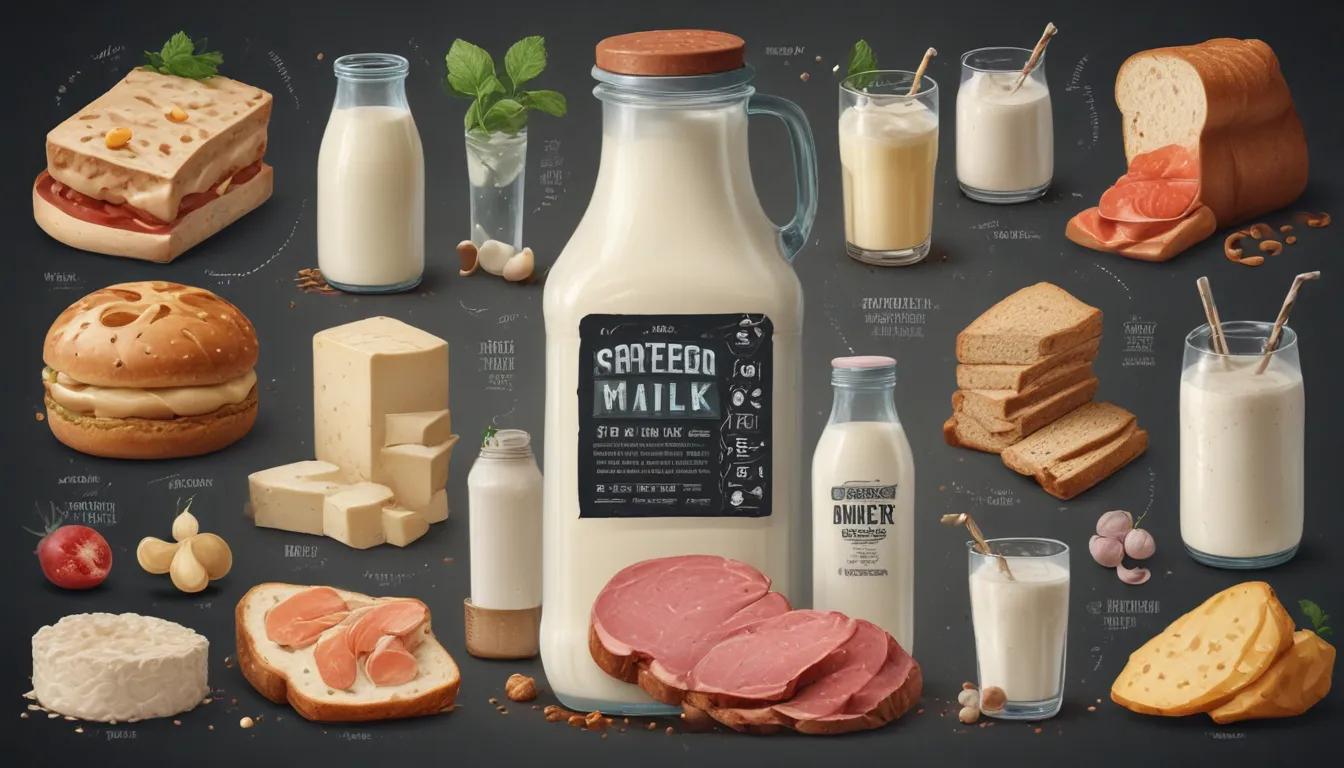The pictures in our articles might not always show exactly what the text is talking about. We use these images to make the article more interesting and eye-catching. They are there to add to the text, but not to replace it or show every detail.
If you've been curious about the rise of "not milk" products in the food industry, you're not alone. Plant-based alternatives to traditional dairy milk are gaining popularity for various reasons, such as lactose intolerance, ethical concerns, and environmental sustainability. In this article, we delve into 10 intriguing nutrition facts about these "not milk" options and why they could be a valuable addition to your diet. Whether you're vegan, health-conscious, or simply looking to switch things up, this comprehensive guide will provide you with insights into the world of not milk and its impact on your overall well-being.
Key Takeaways
- Explore Variety: Try different milk alternatives like almond, soy, and oat milk for a variety of nutrients and flavors.
- Consult a Professional: Before making dietary changes, consult with a healthcare professional or dietitian to ensure your nutritional needs are met.
Almond Milk: A Nutrient Powerhouse
Almond milk is a popular choice among non-dairy milk alternatives. It is low in calories, cholesterol-free, and a good source of vitamin E and healthy fats.
Soy Milk: A Complete Protein Source
Soy milk stands out as a complete protein source, containing all essential amino acids our bodies need. It is also rich in calcium and fortified with vitamins.
Oat Milk: Naturally Sweet and Creamy
Oat milk has gained fame for its naturally sweet and creamy flavor. It is a great source of fiber and essential nutrients like iron, calcium, and vitamin D.
Coconut Milk: Rich and Creamy Goodness
Delivering a rich and creamy texture, coconut milk is a flavorful addition to any dish. While higher in calories, it offers healthy fats and essential minerals like magnesium and potassium.
Rice Milk: Suitable for Allergies
Ideal for those with nut, soy, or gluten allergies, rice milk is naturally sweet but contains fewer nutrients compared to other alternatives.
Hemp Milk: A Nutritional Powerhouse
Packed with omega-3 fatty acids, protein, and essential minerals like phosphorus and magnesium, hemp milk is a true nutritional powerhouse.
Cashew Milk: Creamy and Delicious
Known for its creamy and slightly sweet taste, cashew milk is low in calories and a good source of essential minerals like iron and zinc.
Pea Milk: Packed with Protein
Pea milk offers a rich protein source free from common allergens. It also provides calcium and is often fortified with vitamins like D and B12.
Hazelnut Milk: Rich in Nutrients
Hazelnut milk boasts a distinctive flavor and is a great source of vitamin E, healthy fats, and antioxidants, perfect for both standalone consumption and cooking.
Flax Milk: A Good Source of Omega-3s
Derived from flaxseeds, flax milk is rich in omega-3 fatty acids, fiber, and essential minerals like calcium and iron.
The diversity in the world of milk alternatives offers a range of nutritional benefits and unique flavors. Whether you have dietary restrictions or are seeking new tastes, the 10 not milk nutrition facts mentioned above showcase the health advantages and distinctive qualities of each alternative. It's time to explore these offerings and treat your taste buds to something new.
Conclusion
Conclusively, the 10 not milk nutrition facts shed light on the advantages of embracing non-dairy alternatives for those with lactose intolerance, allergies, or a preference for plant-based diets. From almond milk to oat milk and beyond, these alternatives offer essential nutrients like calcium, protein, and vitamin D, making them suitable swaps for dairy milk. With varied flavors and textures, not milk products can add diversity to your diet. Opt for unsweetened and fortified options to ensure adequate nutrition. Give not milk alternatives a try; your palate and health will appreciate it.
FAQs
Q: Are not milk options suitable for people with lactose intolerance?
A: Not milk options are suitable for individuals with lactose intolerance, providing a lactose-free alternative with essential nutrients.
Q: Can not milk options be used in cooking and baking?
A: Yes, not milk options like almond, soy, and oat milk can substitute dairy milk in most recipes, though they may alter flavor and texture.
Q: Are not milk options fortified with calcium and vitamin D?
A: Most not milk alternatives are fortified with calcium and vitamin D for similar nutritional benefits as dairy milk.
Q: Can not milk options provide enough protein?
A: While not naturally high in protein, many brands offer fortified options with added protein and individuals can obtain protein from other sources.
Q: Can not milk options be consumed by those with soy or nut allergies?
A: Individuals with soy or nut allergies should carefully check ingredient labels, with alternative options like rice or coconut milk available.
As we continue to provide trustworthy content rich in insights and information, our dedication to quality and authenticity remains unwavering. Each fact on our site is contributed by real users like you, ensuring diverse and credible information. Trust in our commitment to delivering engaging and accurate content as you expand your knowledge and explore with us.






